In the dynamic world of logistics and transportation, container trucks play a pivotal role in ensuring efficient and reliable movement of goods. At CarMax Vehicle, we understand the critical importance of container truck specifications in optimizing performance, safety, and cost-effectiveness. This comprehensive guide delves deep into the essential aspects of container truck specifications, offering valuable insights to help you make informed decisions for your business needs.
Understanding Container Truck Specifications
Container truck specifications encompass a wide range of technical parameters and features that define the performance, capacity, and suitability of a container truck for various transportation tasks. These specifications are crucial for ensuring that the truck meets the specific requirements of different cargo types, routes, and operational demands.
Key Components and Features of Container Trucks
To fully grasp container truck specifications, it’s essential to examine the primary components and features that constitute these robust vehicles.
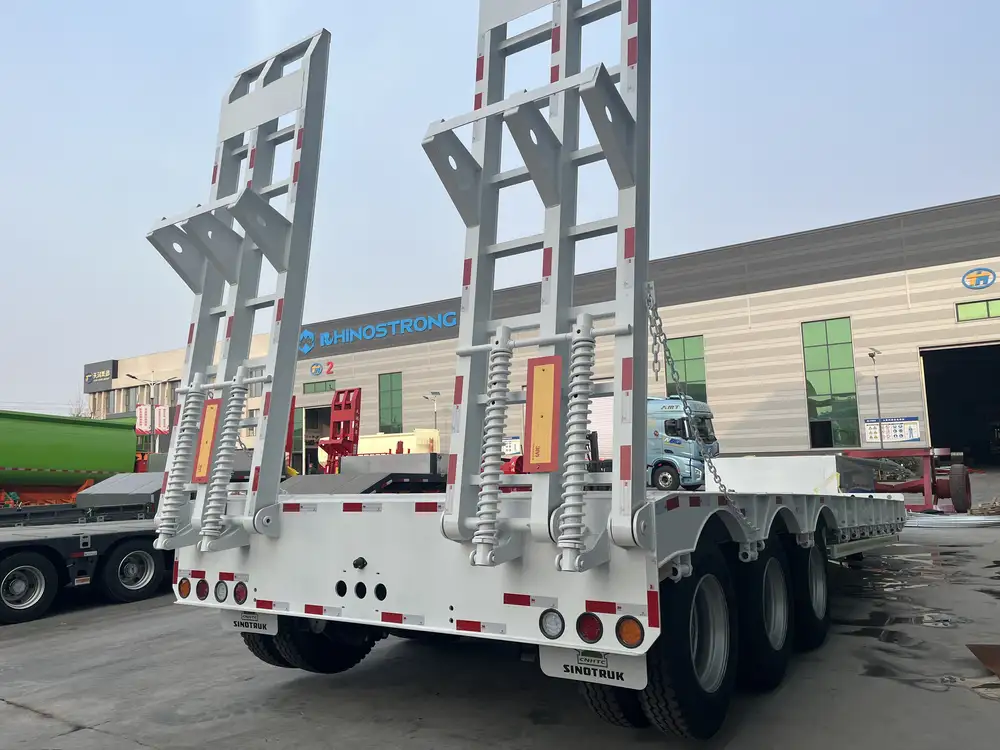
Chassis Design
The chassis serves as the foundational framework of a container truck, supporting all other components. Key considerations in chassis design include:
- Material Quality: High-strength steel alloys ensure durability and longevity.
- Load Distribution: Proper weight distribution enhances stability and reduces tire wear.
- Modularity: Allows for easy customization and adaptability to different container sizes.
Engine and Performance
The engine is the heart of the container truck, influencing its overall performance and efficiency.
- Engine Type: Powerplants range from diesel to alternative fuel engines, each offering distinct advantages.
- Horsepower and Torque: These metrics determine the truck’s ability to haul heavy loads and navigate challenging terrains.
- Fuel Efficiency: Optimized engines reduce operational costs and environmental impact.
| Engine Specification | CarMax Vehicle | Competitor A | Competitor B |
|---|---|---|---|
| Engine Type | High-Torque Diesel | Standard Diesel | Hybrid Diesel |
| Horsepower | 500 HP | 450 HP | 480 HP |
| Torque | 2000 Nm | 1800 Nm | 1900 Nm |
| Fuel Efficiency | 8 km/l | 7 km/l | 7.5 km/l |
Cargo Capacity
The cargo capacity determines the volume and weight of goods a container truck can transport.
- Gross Vehicle Weight Rating (GVWR): Maximum allowable weight including the truck and cargo.
- Container Size Compatibility: Ability to accommodate standard container sizes (e.g., 20ft, 40ft).
- Load Securing Mechanisms: Ensures cargo remains stable during transit.
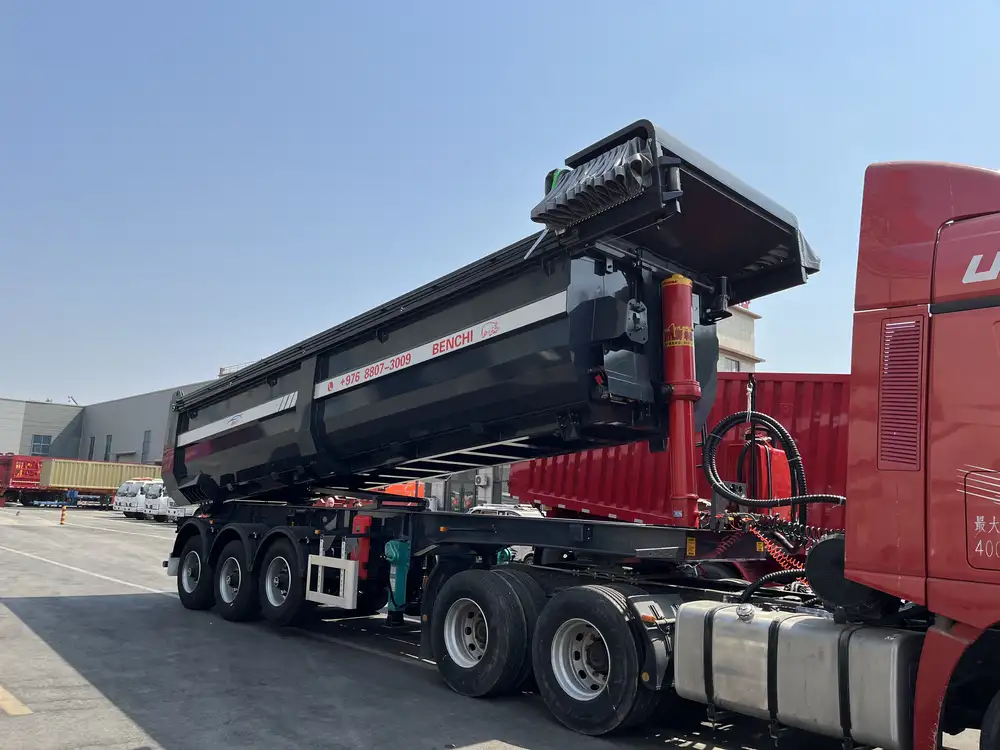
Suspension and Tires
A robust suspension system and high-quality tires are essential for maintaining ride comfort and vehicle stability.
- Suspension Type: Air suspension systems offer superior load handling and ride quality.
- Tire Specifications: High-load capacity tires with puncture-resistant features enhance safety and reliability.
- Wheel Configuration: Dual or single wheels per axle based on load requirements.
Braking Systems
Effective braking systems are critical for ensuring safe and efficient stopping under various conditions.
- Air Brakes: Provide reliable performance and durability.
- Anti-lock Braking System (ABS): Enhances control during emergency stops.
- Brake Assist: Reduces stopping distance and improves safety.
Types of Container Trucks
Container trucks come in various types, each designed to cater to specific transportation needs.

Standard Container Trucks
These are the most common container trucks, designed for general cargo transport. They feature a flatbed chassis capable of carrying standard container sizes with secure locking mechanisms.
Refrigerated Container Trucks
Equipped with cooling units, refrigerated container trucks are essential for transporting perishable goods such as food, pharmaceuticals, and chemicals.
Flatbed Container Trucks
Ideal for oversized or irregularly shaped cargo, flatbed container trucks offer greater flexibility in loading and unloading, accommodating a wide range of container types.
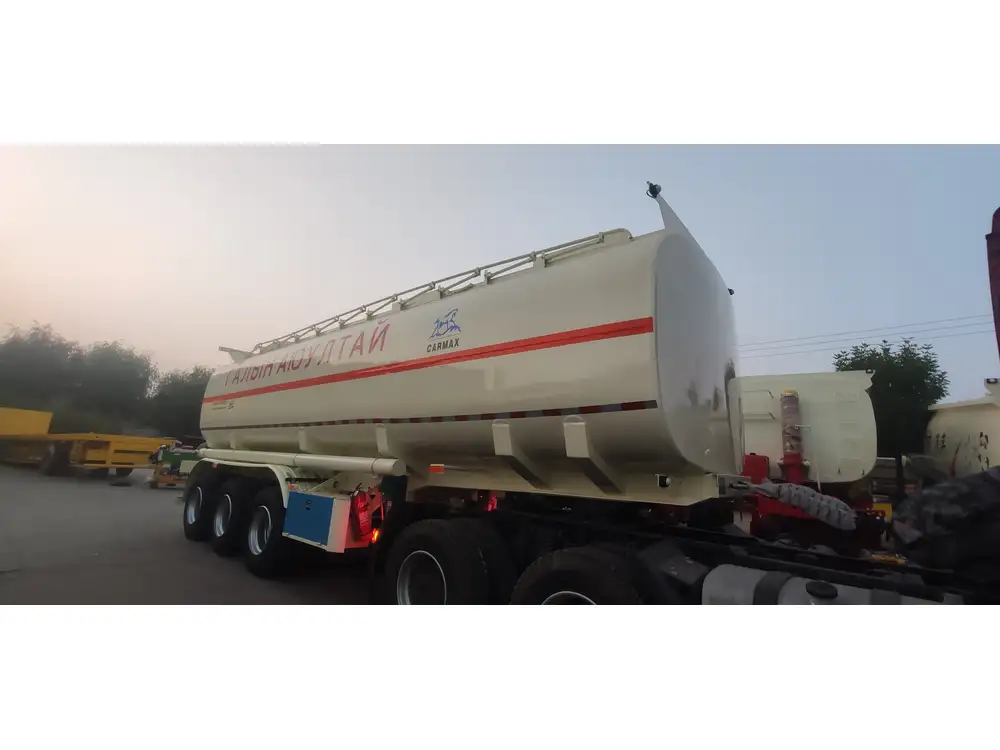
Specialized Container Trucks
These trucks are tailored for niche markets, including hazardous materials transport, livestock, and oversized machinery, featuring specialized equipment and certifications.
Comparing CarMax Trailer Container Trucks with Competitors
At CarMax Vehicle, our CarMax Trailer container trucks stand out in the market due to their superior specifications and innovative features. Here’s a comparative analysis highlighting our advantages.
Quality and Durability
CarMax trailers are engineered with high-grade materials and undergo rigorous testing to ensure longevity and minimal maintenance.
- Material Excellence: Use of premium steel alloys and corrosion-resistant coatings.
- Build Quality: Precision manufacturing processes guarantee structural integrity.

Customization Options
We offer a wide range of customization options to meet diverse client requirements, ensuring optimal performance for specific applications.
- Modular Designs: Easily adaptable to various container sizes and configurations.
- Optional Features: Integration of advanced technological systems such as GPS tracking and automated loading systems.
Technological Advancements
Our container trucks incorporate the latest technological innovations to enhance efficiency and safety.
- Smart Telemetry Systems: Real-time monitoring of vehicle performance and cargo conditions.
- Advanced Safety Features: Automated braking, lane-keeping assist, and collision avoidance systems.
Cost Efficiency
CarMax Trailers provide exceptional value through competitive pricing and lower total cost of ownership.
- Fuel Efficiency: Optimized engine performance reduces fuel consumption.
- Maintenance Savings: Durable components and easy access for repairs minimize maintenance costs.
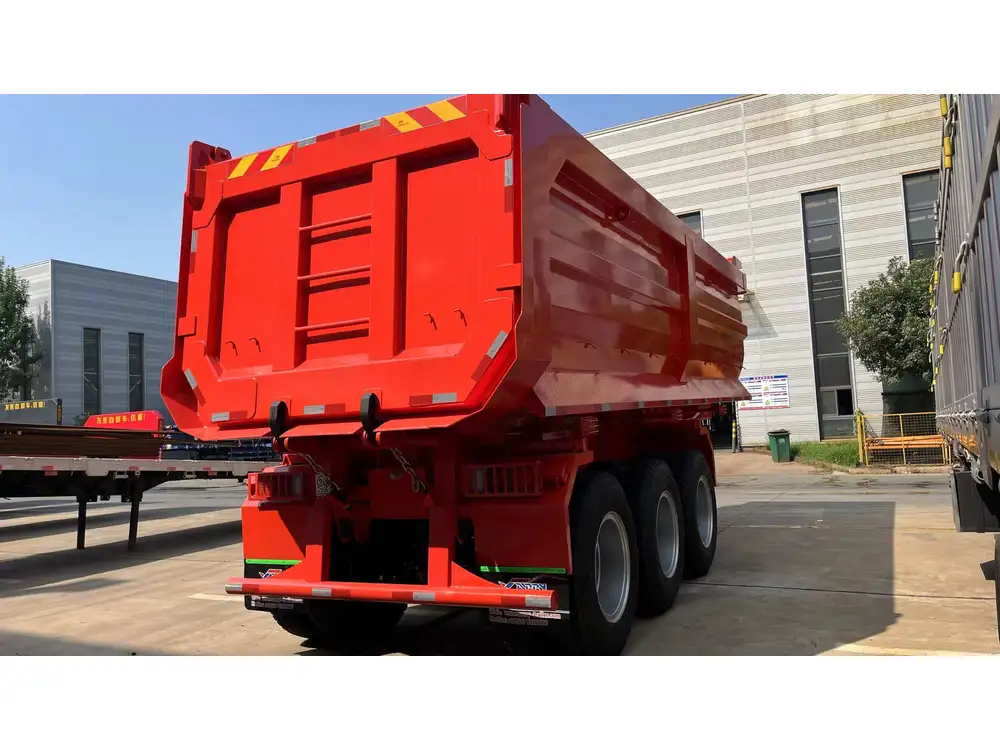
Choosing the Right Container Truck for Your Needs
Selecting the appropriate container truck involves a thorough evaluation of various factors to ensure alignment with your operational requirements.
Assessing Cargo Requirements
Understand the nature and volume of the cargo you intend to transport to determine the necessary truck specifications.
- Weight and Volume: Ensure the truck can handle the maximum load without compromising safety.
- Container Type: Choose between standard, refrigerated, or specialized containers based on cargo needs.
Evaluating Route and Terrain
Consider the typical routes and terrains your container truck will encounter to select the right specifications for optimal performance.
- Terrain Type: Flat, hilly, or mountainous terrains require different suspension and engine capabilities.
- Road Conditions: Paved versus unpaved roads influence tire selection and chassis design.

Regulatory Compliance
Ensure your container truck meets all relevant regulatory standards and safety requirements.
- Weight Regulations: Adhere to local and international weight limits for legal compliance.
- Safety Standards: Incorporate mandatory safety features such as reflective markings and emergency signaling systems.
Maintenance and Safety Considerations
Regular maintenance and adherence to safety protocols are paramount for the longevity and safe operation of container trucks.
Regular Maintenance Schedules
Implementing a strict maintenance regimen helps prevent breakdowns and extends the lifespan of your container truck.
- Routine Inspections: Regular checks of engine, brakes, tires, and electrical systems.
- Scheduled Servicing: Timely oil changes, filter replacements, and component overhauls.

Safety Features
Equipping container trucks with advanced safety features enhances protection for drivers and cargo alike.
- Visibility Enhancements: LED lighting, mirrors, and camera systems improve driver awareness.
- Stability Controls: Systems like electronic stability control (ESC) prevent accidents during maneuvers.
Driver Training
Investing in comprehensive driver training programs ensures safe and efficient operation of container trucks.
- Operational Training: Educate drivers on handling, loading, and securing cargo.
- Safety Protocols: Train drivers on emergency procedures and defensive driving techniques.
Future Trends in Container Truck Specifications
The transportation industry is continuously evolving, and container truck specifications are adapting to meet emerging demands and technological advancements.
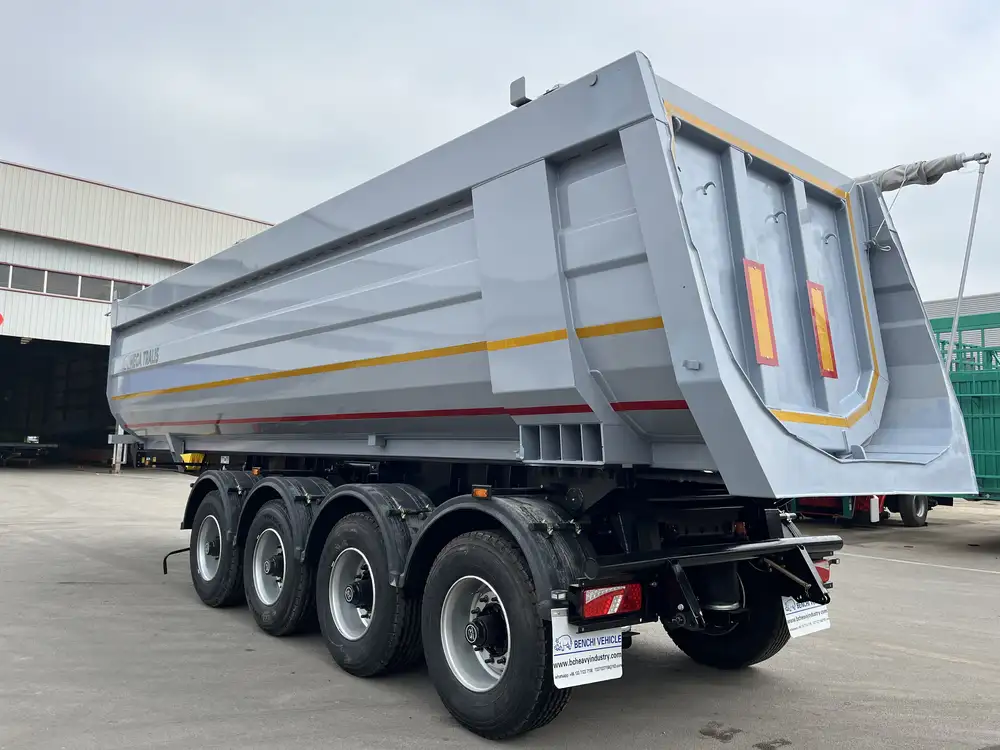
Electrification and Alternative Fuels
The shift towards electric and alternative fuel-powered container trucks aims to reduce carbon emissions and operational costs.
- Electric Engines: Offer zero-emission transportation with lower maintenance requirements.
- Hydrogen Fuel Cells: Provide extended range and quick refueling capabilities.
Autonomous Driving Technology
Integration of autonomous systems enhances safety and efficiency, reducing the reliance on human drivers.
- Self-Driving Capabilities: Advanced sensors and AI algorithms enable autonomous navigation.
- Remote Monitoring: Real-time data transmission allows for remote control and oversight.
Smart Connectivity
Enhanced connectivity features facilitate better communication and coordination within logistics networks.
- IoT Integration: Connects various truck components for seamless data exchange and monitoring.
- Fleet Management Systems: Streamline operations through centralized control and optimization tools.

Why Choose CarMax Vehicle for Your Container Truck Needs
CarMax Vehicle stands as a leader in the container truck manufacturing sector, offering unparalleled quality, innovation, and customer-centric solutions. Here’s why partnering with us benefits your business:
- Expertise and Experience: Decades of industry experience ensure reliable and high-performing products.
- Customization Excellence: Tailored solutions address unique operational challenges and requirements.
- Commitment to Quality: Rigorous quality control processes guarantee superior craftsmanship and durability.
- Comprehensive Support: From initial consultation to after-sales service, we provide ongoing support to ensure optimal performance.
Frequently Asked Questions (FAQs)
1. What are the standard sizes for containers used in container trucks?
Standard container sizes typically include 20-foot and 40-foot lengths, each designed to fit specific types of cargo and transportation needs. These dimensions ensure compatibility with various container trucks and logistical systems worldwide.

2. How does the Gross Vehicle Weight Rating (GVWR) impact container truck performance?
GVWR determines the maximum allowable weight the container truck can safely carry, including the vehicle itself and the cargo. Adhering to GVWR is crucial for maintaining vehicle stability, fuel efficiency, and complying with legal weight regulations.
3. What maintenance practices are essential for ensuring the longevity of container trucks?
Essential maintenance practices include regular engine inspections, timely oil changes, brake system checks, tire rotations, and ensuring all safety features are functional. Adhering to a strict maintenance schedule prevents unexpected breakdowns and extends the vehicle’s operational lifespan.
4. Can CarMax Trailer container trucks be customized for specialized cargo requirements?
Yes, CarMax Trailer container trucks offer extensive customization options to cater to specialized cargo needs. Whether you require refrigerated units, flatbed configurations, or specialized securing mechanisms, we can tailor our trucks to meet your specific transportation demands.
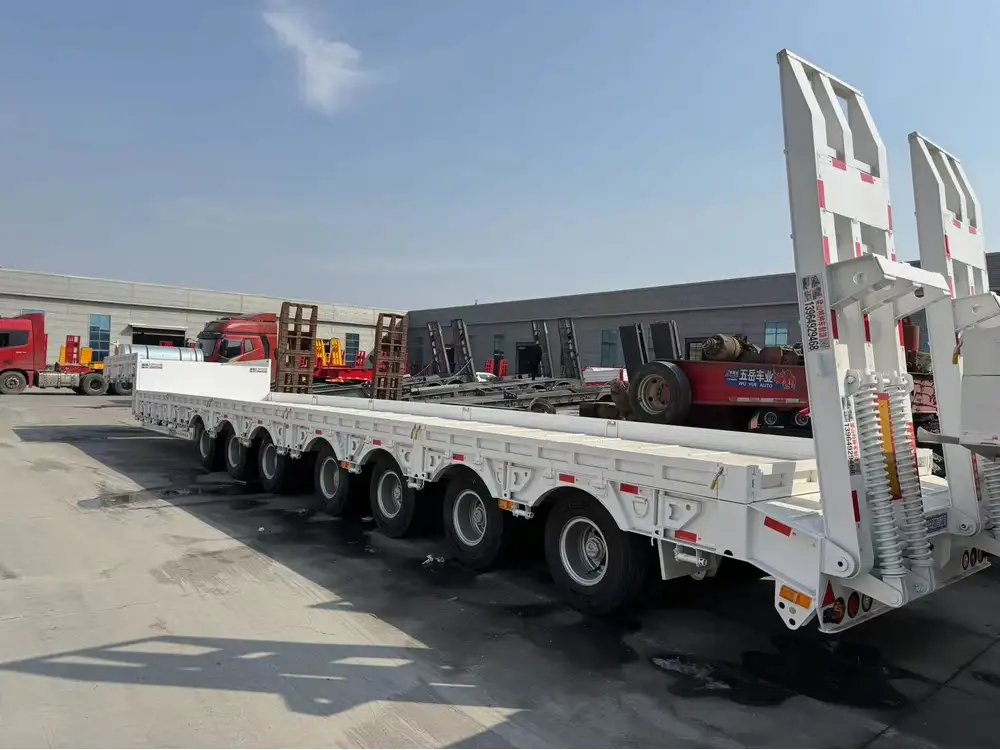
5. What technological advancements are integrated into CarMax Trailer container trucks?
CarMax Trailer container trucks incorporate advanced technologies such as smart telemetry systems for real-time performance monitoring, automated braking and collision avoidance systems for enhanced safety, and IoT integration for seamless connectivity and fleet management.
By thoroughly understanding container truck specifications and leveraging the expertise of CarMax Vehicle, you can optimize your logistics operations, enhance efficiency, and achieve superior transportation outcomes. Whether you require standard, refrigerated, or specialized container trucks, our CarMax Trailer offerings are designed to meet and exceed your expectations.



